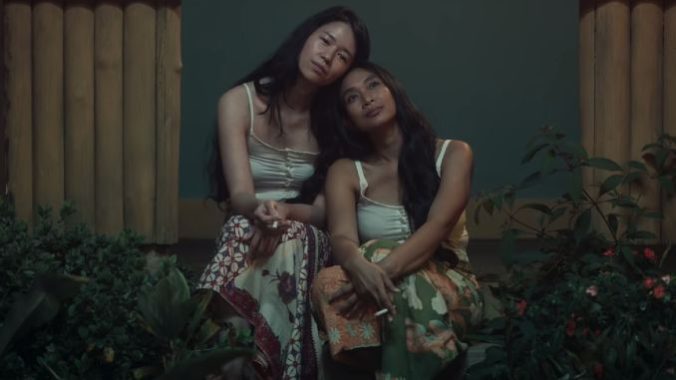Hazy Indonesian Period Drama Before, Now & Then Finds Intimacy in Infidelity

In life’s waking dream, we can only really ever hope to evade—or at least forget—our nightmares. Nana (Happy Salma) makes her way through Before, Now & Then’s ‘60s Bandung in a fugue, haunted by her past and so dissociated from her present that even her most mundane daily activities feel like they could evaporate into the muggy Indonesian heat. That’s the reality of a woman in this era, her truths confined to the silent yet honest subconscious. Writer/director Kamila Andini, who explored female independence in a younger and more modern fashion with last year’s Yuni, adapts Ahda Imran’s biographical Jais Darga Namaku into a stirring vignette of a woman’s crossroaded, multifaceted existence as a survivor, mother, wife and businesswoman. It’s only appropriate that Andini finds such richness in what amounts to just a single chapter in its subject’s life: Its contemplative complexities are both wrenching and hopeful, assuring us that moving forward is always possible—even if we never truly leave anything behind.
Nana’s bittersweet marriage to older, wealthy plantation owner Darga (Arswendy Bening Swara) is pestered by her memories. She escaped the violence of the Indonesian National Revolution, but her first husband and father were not so lucky. Their fates, as she imagines them, buzz about her body like mosquitos, playing out in pantomime like Apichatpong Weerasethakul’s foliage-obscured spirits. Whether they’re dead or simply missing, to Nana, they are gone, plain and simple. It’s been 15 years since her desperate jungle escape. Now she’s saddled with multiple small children, including the charming and inquisitive Dais (Chempa Puteri), as her country is once again embroiled by violence—this time a genocidal anti-Communist coup by Major General Suharto, taking over from the country’s first president, Sukarno.
But Nana, for better or worse, is apart from all that now. She’s protected by wealth in a way she never was in her youth. Her worries are personal, domestic. The cutting loudmouths at her rich lady luncheons are far more threatening to her well-being than the McCarthyistic murderers her servants whisper about. They’re even more distressing than Darga’s infidelity, brazen and blatant to the point that his mistress, a butcher named Ino (Laura Basuki), doesn’t even bother waiting until Nana’s not around to send her couriered invitations to the couple’s house. Darga and Ino flout monogamy and fuel the gossip fires, but it mostly intrigues Nana. She knows her husband, even if she’s not excited by him, but what kind of woman could Ino be?
Her investigation, which leads to an intimate connection that pushes romantic and queer boundaries with understated physical closeness, is colored by big style and suppressed emotions. Floral sarong kebaya power-clash on the upper-crust’s sleek bodies; pounding drums drive their pose-filled Boogaloo dances; cigarettes, their smoke omnipresent, are shared or snuffed out. And almost nobody says what they mean. Andini uses little dialogue in general, relying on Salma’s exquisite eyes. Fleeting and sardonic, they meet or dodge those of the coy Basuki, whose youthful verve helps explain Darga’s attraction—and Nana’s.
-

-

-

-

-

-

-

-

-

-

-

-

-

-

-

-

-

-

-

-

-

-

-

-

-

-

-

-

-

-

-

-

-

-

-

-

-

-

-

-








































